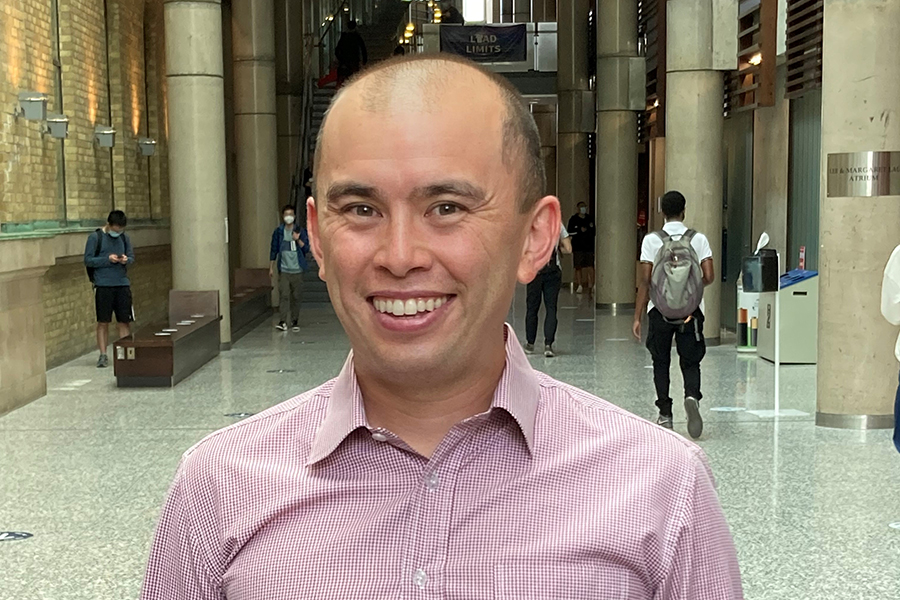Jay Werber recently joined the Department of Chemical Engineering & Applied Chemistry as an Assistant Professor.
Werber leads the Advanced Membranes lab, which focuses on developing high-performance materials for aqueous separations and water treatment. Prior to joining U of T, he was a postdoctoral associate in polymer chemistry at the University of Minnesota, where he synthesized block-copolymer-based membranes for selective ion separations.
He received his PhD in chemical and environmental engineering from Yale University, where he was an NSF Graduate Research Fellow and an Abel Wolman Fellow through the American Water Works Association. At Yale, Werber studied the permeability and selectivity limits of polymeric, biomimetic and nanomaterial-based desalination membranes.
Prior to his graduate studies, Werber received a BS in chemical engineering, with a minor in biology, from Washington University in St. Louis, after which he spent four years designing industrial protein separation processes at the biopharmaceutical company Genentech.
Writer Jen Hsu spoke with Werber to learn more about his research and his plans for the next few years.
Why did you choose U of T?
U of T is a tremendous fit for me on many levels. ChemE has a strong focus in water research, which I am excited to add to with my lab’s research on membrane-based separations. I also can’t wait to teach, and having the opportunity to work with many students from diverse backgrounds in a large public university is very exciting. I am also very excited to work at a world-class university and live in a world-class city.
How have your global experiences shaped you as a teacher? What has been most rewarding about having these global experiences, personally and professionally?
My experiences have mostly been south of the border in various parts of the United States, where I have spent the majority of my life. Beyond that, I lived and studied for a short time in Taiwan, where my mother grew up before emigrating to the U.S. Being multiracial has played an important role in shaping my worldview.
My professional experience has been particularly shaped through my work in “non-traditional” chemical engineering topics, including my research in environmental engineering and my time working in the biopharmaceutical industry at Genentech in California. These experiences have shown me how valuable chemical engineering training can be, even in fields that are sometimes not immediately associated with it.
What are you most looking forward to in your new position?
I’m looking forward to engaging students in modern chemical engineering, and getting them prepared and excited to tackle the monumental challenges that society will face in the coming years.
I hope to make a difference through innovation, in terms of both research and engineering education. Chemical engineers and the field of chemical engineering will play critical roles in our transition to a sustainable society. I’m excited to play a role in training students to be leaders in that transition.
What advice do you have for new students?
Get involved in something you care about, which could be a job, student group, research, outside organization, or really just about anything. Leadership and teamwork skills are critical to excelling in work and life. Extracurricular activities are the perfect avenue for developing those skills, while making a difference!
What is something most people might not know about you?
Lots! I’m new! If I were to pick one thing, it would be that I picked up pickleball while in Minnesota, which is wildly fun.




